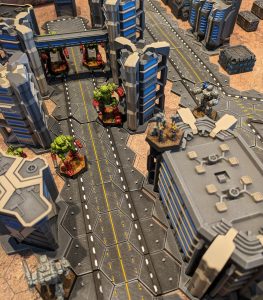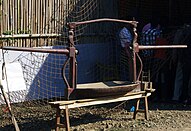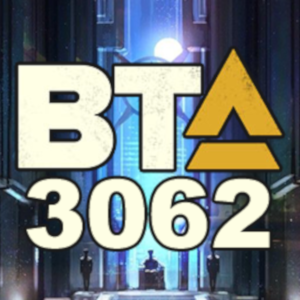Dola
Sarna News

- HEXTECH Review - Wave 3 Brings More Urban Options To Your Battlefield
- Your BattleTech News Round-Up For March, 2024
- Crashing 'Mechs With Jennifer Brozek, Author Of The Rogue Academy Trilogy
- Getting The Word Out With Rem Alternis, Catalyst Community & Marketing Director
- Bad 'Mechs - Yeoman
- Read more →
Revision as of 21:26, 7 March 2018 by HussarZwei (talk | contribs)

| |
| Dola | |
|---|---|
| Production information | |
| Manufacturer | Shengli Arms, Bergan Industries |
| Production Year | 3079[1] |
| Model | DOL-1A |
| Class | Light |
| Technical specifications | |
| 'Mech type | Inner Sphere BattleMech |
| Mass | 30 tons |
| Chassis | Custom Prototype |
| Armor | Light Ferro-Fibrous |
| Engine | 240XL |
| Speed | 120 km/h |
| Jump Jets | 8 |
| Armament | |
| BV (2.0) | 936[2] |
Contents
Description
The Dola is designed as a defensive unit, capable of arriving at a combat site quickly and finishing off an enemy just as quickly. Its impressive speed and maneuverability help it take on larger 'Mechs. The Dola uses several experimental systems to increase its effectiveness: Six tons of Light Ferro-Fibrous armor protect a Composite Internal Structure, an XL Gyro, and an XL Engine.[2]
Weapons and Equipment
The Dola is armed with a pair of ER Medium lasers, which are backed up with a Vibroblade capable of carving through 'Mech armor. An Angel ECM suite helps keep the 'Mech alive and make a stealthy attack.
Variants
- DOL-1A1
- This Dola variant is intended to act as a skirmisher. It is the production variant of the original DOL-1A. By replacing the fragile Composite Internal Structure with a standard skeleton, and the XL Gyro with a standard one, the Dola is now a much tougher 'Mech. In addition, the use of a full-sized cockpit in place of the small cockpit makes piloting the 'Mech much easier. To make room for these changes, the armor was reduced by a half-ton and the Vibroblade was downgraded to a standard Sword. Despite this sacrifice, the 'Mech has become very popular with Capellan pilots. BV (2.0) = 950[3]
- DOL-1A2
- A field refit of the DOL-1A1. This variant swaps the standard sword and Angel ECM suite for TAG and a light vibroblade. It is used mainly by the Warrior Houses. BV (2.0) = 950[3]
Design Quirks
The DOL-1A1 Dola variant is subject of the following Design Quirks:[3]

